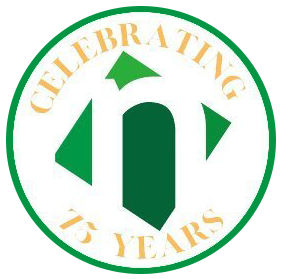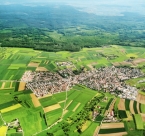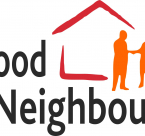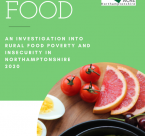Find out how we can support your community on a wide range of issues....
Rural Wellbeing Service
Wellbeing Service
For many residents in rural communities, it can be difficult to get the support they need. They may not know who to speak to about an issue or where to go to get the right advice and support. Our Rural Wellbeing Service can help with this. Our Rural Fieldworkers can visit your village, hall, community group or event and can speak to residents about issues they may be experiencing, signpost people on to other organisations who can offer the specific support they may need and even help set up new activities.
Our Wellbeing Service is a continuation of the National Lottery funded project we ran from March 2015 to March 2019 which was funded by the through their Reaching Communities programme. We continue to offer support, advice and signposting to residents in rural areas as well as helpoing volunteers to set up new activities or events that may benefit their neighbours, but we no longer hire the RIC from SNVB as this was only possible through the funding provided by the National Lottery. However, if you are having an event and would like one of our fieldworkers, Claire and Jo, to join you, they would be happy to do so. They can bring all their knowledge and experience plus lots of useful information to signpost anyone on to other support agencies.
If you would like a free visit, you can contact them on 01604 765888 or email [email protected] and ask for Claire or Jo to contact you.
 And why not find out more about Good Neighbour Schemes, which are part of our Wellbeing Service? Jo and Claire can explain about the benefits of setting up such a scheme in your area and can support you to do so including offering a wide range of policies, training and documents.
And why not find out more about Good Neighbour Schemes, which are part of our Wellbeing Service? Jo and Claire can explain about the benefits of setting up such a scheme in your area and can support you to do so including offering a wide range of policies, training and documents.
National Lottery funded Rural Wellbeing Project
 Our Rural Wellbeing Service was a 4-year project running from March 2015 to March 2019 funded by the Big Lottery through their Reaching Communities programme.
Our Rural Wellbeing Service was a 4-year project running from March 2015 to March 2019 funded by the Big Lottery through their Reaching Communities programme.
With this project, we aimed to:
- Help reduce feelings of loneliness among people over 50 living in rural areas of Northamptonshire. We aim to help them become more resilient and to enjoy improved community engagement with other residents.
- Help them to access relevant services to enable them to experience improvements in their physical, mental and financial well-being.
Loneliness and social isolation are two growing issues facing many older people, especially in rural areas. A recent study found that "social isolation is associated with a higher risk of death in older people regardless of whether they consider themselves lonely". The project involved visiting rural communities with our mobile Information Bus, which we hired from South Northants Volunteer Bureau.
Although this funded programme has now finished, as part of the project, we had a company, Capidale, carry out an evaluation of the Service. You can read the evaluation here. Over the four years of running the service, a great deal has been learned and we have taken this learning forward in our continued delivery of our Wellbeing Service. There were four key learning points that can be drawn from the research:
- The service has huge and growing demand – austerity, reductions in voluntary organisations’ funding and the crisis in Northamptonshire County Council causing dramatic transport and service cuts means more and more people in rural communities are contacting the service for support. In November 2018 alone, the service had 118 requests for help – a growth of 318% in four years. There is overwhelming need for a continuation service, especially given the crisis at Northamptonshire County Council.
- The RIC can work, but visits to community venues and groups are often more effective – the RIC is quite large and cumbersome, and it can be difficult to find appropriate places to park in small villages. Over time, the service has found that running regular surgeries in community halls and visiting local groups reaches more people, including tapping local knowledge to identify hard to reach people needing home visits. The service can save costs and reach more people without the RIC.
- Partnership working can take time to build – initially, the service found that some partneragencies were reluctant to engage, fearing the Rural Wellbeing Service as a competitor service. However, over time, partners have embraced the service as a way of accessing people in rural areas needing support they couldn’t otherwise reach. As Northamptonshire Carers puts it: “[The Rural Wellbeing Service] is a strong partnership… able to promote more than one organisation at the same time, there’s no duplication and it is more effective.”
-
Building community capacity through Good Neighbour Schemes offers a breakthrough solution – initially, the service recruited individual volunteers to provide local support between staff visits, but the role of individual volunteers was large and there wasn’t enough capacity within the team to provide the support required. To address this, in Daventry District, the service trialled setting up Good Neighbour Schemes, with a local co-ordinator and multiple volunteers supporting each other. Good Neighbour Schemes can transform rural communities’ capacity to support people in need, and there is strong evidence to suggest they should be rolled out in the future. When local people were consulted about whether there is a need formore Good Neighbour Schemes, 96% said it was a good idea:
"Sounds exactly what I need". " I heard about the one in Moulton and it seemed a good idea".
"It would bring a sense of community back, like the old days".
Since the end of this project, we have applied to the National Lottery Community Fund for funding to deliver our Good Neighbour Schemes work throughout the county and been successful. Find out more about how to set up your own Good Neighbour scheme here.









